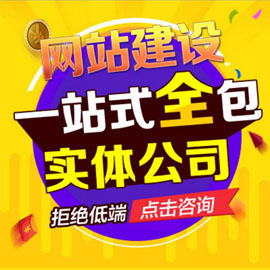微信小程序之UI與容器組件的示例分析
這篇文章主要為大家展示了“微信小程序之UI與容器組件的示例分析”,內(nèi)容簡而易懂,條理清晰,希望能夠幫助大家解決疑惑,下面讓小編帶領(lǐng)大家一起研究并學(xué)習(xí)一下“微信小程序之UI與容器組件的示例分析”這篇文章吧。
公司主營業(yè)務(wù):網(wǎng)站建設(shè)、網(wǎng)站設(shè)計(jì)、移動(dòng)網(wǎng)站開發(fā)等業(yè)務(wù)。幫助企業(yè)客戶真正實(shí)現(xiàn)互聯(lián)網(wǎng)宣傳,提高企業(yè)的競爭能力。創(chuàng)新互聯(lián)公司是一支青春激揚(yáng)、勤奮敬業(yè)、活力青春激揚(yáng)、勤奮敬業(yè)、活力澎湃、和諧高效的團(tuán)隊(duì)。公司秉承以“開放、自由、嚴(yán)謹(jǐn)、自律”為核心的企業(yè)文化,感謝他們對(duì)我們的高要求,感謝他們從不同領(lǐng)域給我們帶來的挑戰(zhàn),讓我們激情的團(tuán)隊(duì)有機(jī)會(huì)用頭腦與智慧不斷的給客戶帶來驚喜。創(chuàng)新互聯(lián)公司推出磁縣免費(fèi)做網(wǎng)站回饋大家。
微信小程序 UI與容器組件總結(jié)
1.總結(jié)與概述
2.容器組件
2.1 組件容器(view)
2.2 可滾動(dòng)視圖容器(scroll-view)
2.3 滑塊視圖容器(swiper)
1.總結(jié)與概述
1.1 UI組件總結(jié)圖
1.2 概述
小程序的UI組件也就是定義用戶界面的一系列標(biāo)簽,類似于html標(biāo)簽。一個(gè)完整用戶響應(yīng)過程:事件觸發(fā)——>UI組件接收到事件——>觸發(fā)js函數(shù)響應(yīng)事件——>更新UI
2.容器組件
2.1 容器組件(view)
(1)總結(jié)

(2)例子
效果圖

page.wxml
<view> <text class="row-view-title">水平布局:</text> <view class="flex-wrp-row"> <view class="flex-item-red" hover="true" hover-class="hover-style"><text class="color-text">red</text></view> <view class="flex-item-green" hover="true" hover-class="hover-style"><text class="color-text">green</text></view> <view class="flex-item-blue" hover="true" hover-class="hover-style"><text class="color-text">blue</text></view> </view> </view> <view> <text class="column-view-title">垂直布局:</text> <view class="flex-wrp-column" > <view class="flex-item-red" hover="true" hover-class="hover-style"><text class="color-text" >red</text></view> <view class="flex-item-green" hover="true" hover-class="hover-style"><text class="color-text">green</text></view> <view class="flex-item-blue" hover="true" hover-class="hover-style"><text class="color-text">blue</text></view> </view> </view>
page.wxss
.flex-item-red{
background-color: red;
height: 200rpx;
width: 200rpx;
text-align: center;
line-height: 200rpx;
}
.flex-item-green{
background-color: green;
height: 200rpx;
width: 200rpx;
text-align: center;
line-height: 200rpx
}
.flex-item-blue{
background-color: blue;
height: 200rpx;
width: 200rpx;
text-align: center;
line-height: 200rpx
}
.flex-wrp-row{
flex-direction: row;
display: flex;
margin-left: 10rpx;
margin-top: 20rpx;
}
.flex-wrp-column{
flex-direction: column;
display: flex;
margin-left: 10rpx;
margin-top: 20rpx;
}
.color-text{
color: snow;
font-family: 'Times New Roman', Times, serif;
font-weight: bold;
}
.hover-style{
background-color: black;
}
.row-view-title,.column-view-title{
margin-left: 20rpx;
font-family: 'Times New Roman', Times, serif;
font-weight: bold;
}
/*重要屬性:
display: flex; //與display:box;是類似,是flexbox的最新語法格式,有更好的適配效果
flex-direction: column; //表示子布局垂直布局
flex-direction: row; //表示子布局為水平布局
*/2.2 可滾動(dòng)視圖容器(scroll-view)
(1) 總結(jié)

(2) 例子
效果圖:

page.wxml
<view> <text>水平滾動(dòng)布局</text> </view> <view class="x-view"> <scroll-view class="scroll-view-x" scroll-x="true" bindscrolltoupper="scrollXToUpper" bindscrolltolower="scrollXToLower" bindscroll="scroll" scroll-left="0" scroll-into-view="pw_green"> <view id="green" class="x_green"></view> <view id="red" class="x_red"></view> <view id="yellow" class="x_yellow"></view> <view id="blue" class="x_blue"></view> </scroll-view> </view> <view> <text>垂直滾動(dòng)布局</text> </view> <view class="y-view"> <scroll-view class="scroll-view-y" scroll-y="true" bindscrolltoupper="scrollYToUpper" bindscrolltolower="scrollYToLower" bindscroll="scroll" scroll-top="0" scroll-into-view="pw_green"> <view id="green" class="y_green"></view> <view id="red" class="y_red"></view> <view id="yellow" class="y_yellow"></view> <view id="blue" class="y_blue"></view> </scroll-view> </view>
page.wxss
.x_green{
background-color: green;
width: 500rpx;
height: 300rpx;
display: inline-flex;
}
.x_red{
background-color: red;
width: 500rpx;
height: 300rpx;
display: inline-flex;
}
.x_blue{
background-color: blue;
width: 500rpx;
height: 300rpx;
display: inline-flex;
}
.x_yellow{
background-color: yellow;
width: 500rpx;
height: 300rpx;
display: inline-flex;
}
.y_green{
background-color: green;
width: 100%;
height: 300rpx;
}
.y_red{
background-color: red;
width: 100%;
height: 300rpx;
}
.y_yellow{
background-color: yellow;
width: 100%;
height: 300rpx;
}
.y_blue{
background-color: blue;
width: 100%;
height: 300rpx;
}
.scroll-view-x{
display: flex;
white-space: nowrap;
width: 100%;
margin-bottom: 20px;
margin-top: 10px;
height: 300rpx;
}
.scroll-view-y{
height: 400rpx;
}
/*重要屬性:
white-space: nowrap;//設(shè)置內(nèi)部元素不換行顯示,與display: inline-flex;屬性聯(lián)合使用才會(huì)有水平布局的效果
*/page.js
//index.js
//獲取應(yīng)用實(shí)例
var app = getApp()
//var color_index=['green','red','yellow','blue'];
Page({
data:{
toview:'red',
},
/*滑動(dòng)到左邊觸發(fā)*/
scrollXToUpper:function(){
console.log('scrollXToUpper')
},
/*滑動(dòng)到右邊觸發(fā) */
scrollXToLower:function(){
console.log('scrollXToLower')
},
/*滑動(dòng)到頂部觸發(fā)*/
scrollYToUpper:function(){
console.log('scrollYToUpper')
},
/*滑動(dòng)到左邊觸發(fā) */
scrollYToLower:function(){
console.log('scrollYToLower')
},
/*滑動(dòng)觸發(fā) */
scroll:function(){
console.log("scroll")
},
onLoad: function () {
console.log('onLoad')
var that = this
},
})2.3 滑塊視圖容器(swiper)
(1)總結(jié)

(2)例子
效果圖:

page.wxml
<swiper data-current="0" current="0" bindchange="itemChangeFunc" circular="true" indicator-dots="pw_indicatorDots" autoplay="pw_autoplay" interval="pw_interval" duration="pw_duration"> <block wx:for="pw_imgUrls" wx:key="swiperkeys"> <swiper-item> <image src="pw_item" class="slide-image" width="355" height="150"/> </swiper-item> </block> </swiper>
page.js
//game.js
Page({
data: {
imgUrls: [
'/image/wechat.png',
'http://img02.tooopen.com/images/20150928/tooopen_sy_143912755726.jpg',
'http://img06.tooopen.com/images/20160818/tooopen_sy_175866434296.jpg',
'http://img06.tooopen.com/images/20160818/tooopen_sy_175833047715.jpg'
],
indicatorDots: true,
autoplay: true,
interval: 3000,
duration: 1000,
current:1,
},
durationChange: function(e) {
this.setData({
duration: e.detail.value
})
},
durationChange: function(e) {
this.setData({
duration: e.detail.value
})
},
itemChangeFunc:function(e){
// console.log(e.target.dataset.current)
console.log(e.detail)
}
})以上是“微信小程序之UI與容器組件的示例分析”這篇文章的所有內(nèi)容,感謝各位的閱讀!相信大家都有了一定的了解,希望分享的內(nèi)容對(duì)大家有所幫助,如果還想學(xué)習(xí)更多知識(shí),歡迎關(guān)注創(chuàng)新互聯(lián)行業(yè)資訊頻道!
本文名稱:微信小程序之UI與容器組件的示例分析
瀏覽地址:http://chinadenli.net/article48/jhpshp.html
成都網(wǎng)站建設(shè)公司_創(chuàng)新互聯(lián),為您提供品牌網(wǎng)站制作、網(wǎng)站維護(hù)、軟件開發(fā)、App設(shè)計(jì)、關(guān)鍵詞優(yōu)化、域名注冊(cè)
聲明:本網(wǎng)站發(fā)布的內(nèi)容(圖片、視頻和文字)以用戶投稿、用戶轉(zhuǎn)載內(nèi)容為主,如果涉及侵權(quán)請(qǐng)盡快告知,我們將會(huì)在第一時(shí)間刪除。文章觀點(diǎn)不代表本網(wǎng)站立場,如需處理請(qǐng)聯(lián)系客服。電話:028-86922220;郵箱:631063699@qq.com。內(nèi)容未經(jīng)允許不得轉(zhuǎn)載,或轉(zhuǎn)載時(shí)需注明來源: 創(chuàng)新互聯(lián)

- 注冊(cè)域名這種常見問題要了解 2016-11-14
- 域名注冊(cè)需要注意的問題? 2022-05-25
- 國內(nèi)域名注冊(cè)條件和選擇原則是什么? 2016-11-18
- 網(wǎng)站域名注冊(cè)和備案的新規(guī)定 2016-08-08
- 成都域名注冊(cè)如何挑選網(wǎng)站域名? 2016-10-26
- 域名注冊(cè)細(xì)節(jié)您了解么?教您如何避免損失 2021-05-14
- 深圳網(wǎng)站制作國際域名注冊(cè)要求 2021-05-01
- 域名注冊(cè)的六點(diǎn)注意事項(xiàng) 2021-08-21
- 注冊(cè)域名這些注意事項(xiàng)要知曉 2016-11-16
- 加州檢察長介入 ICANN再次推遲轉(zhuǎn)售.ORG域名注冊(cè)業(yè)務(wù) 2021-02-16
- 網(wǎng)站建設(shè)注冊(cè)域名的重要性 2017-02-07
- 嘉定網(wǎng)站制作開發(fā)-注冊(cè)域名注意事項(xiàng) 2020-11-23